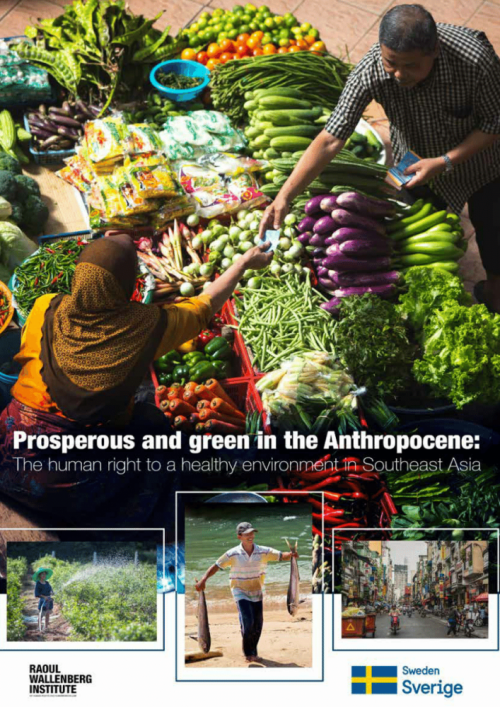
https://sdg.iisd.org/news/report-explores-links-between-human-right-to-h...
The Raoul Wallenberg Institute of Human Rights and Humanitarian Law, an eminent research center on human rights based in Sweden, has published a report linking human rights to the ongoing degradation of the enviroment and ecosystems in the South East Asian region.
The report was written by y: C. Dany, C. Ituarte-Lima, D. Paramita, D. Paul, MM. Aung, MT. Aung, N. Saenphit, S. San, T. Chavisschindha, V. Bernard
Abstract:
For the first time in human history, people are collectively modifying the Earth’s environment and ecosystems on a global scale. Some scholars suggest the world is entering a new geological era, the Anthropocene, in which Earth systems are moving into a risky and unstable state as a result of people’s impacts on the environment.
The social-ecological crises we are experiencing do not affect all people in the same way. People in already vulnerable situations are experiencing the most severe impacts, although they may bear least responsibility for these changes. Humanity must shift towards new ways of living through just and sustainable pathways. Successfully tackling these challenges at the global, regional, and national levels will require the collaboration of law and policy makers, scholars, and practitioners who bring with them diverse life experiences, expertise, and place-based knowledge.
Like other regions of the world, Southeast Asia is faced with unprecedented social-ecological challenges. Events, such as the rapid emergence and spread of the COVID-19 virus, have wide-ranging implications for both human rights and the environment. As countries seek to solve such problems within and beyond their borders, effective human rights and environmental legal and policy frameworks are needed to support and coordinate efforts in line with international cooperation norms.
Recognizing the human right to a healthy environment helps protect people and nature, and ensures the conditions for continued sustainable development and prosperity. Southeast Asian countries have already taken important steps towards mainstreaming human rights and sustainability through their legislative systems and institutions, setting a framework for the Association of Southeast Asian Nations (ASEAN) to strengthen current approaches as a regional body through its existing human rights instruments and regional environmental agreements.
Read here a great article from the SDG Knowledge Hub run by IISD: https://sdg.iisd.org/news/report-explores-links-between-human-right-to-h...
Watch here the recording of the launch: https://drive.google.com/drive/folders/1cFTAhIf7duBIizkO5AKO_8pX2E9al7zr
About the Institute: https://rwi.lu.se/about/
The institute is named after Raoul Wallenberg, the Swedish diplomat who saved tens of thousands of Jews and other people at risk in Hungary at the end of World War II.










Add new comment